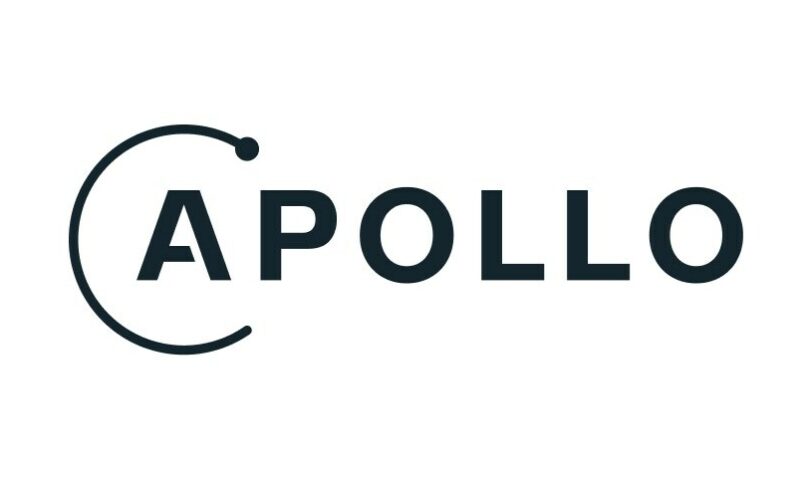Enterprises and Builders Can Now Unencumber API Price The use of GraphQL Sooner, Extra Successfully, and at Scale
Early Adopter Cox Car Deploys Apollo Connectors, Avoids Yearlong Device Overhaul
SAN FRANCISCO, Feb. 19, 2025 /PRNewswire/ — Apollo GraphQL, the graph-based API orchestration corporate, as of late introduced the overall availability of Apollo Connectors for REST APIs and unutilized GraphOS platform improvements – giving enterprises a sooner, extra environment friendly approach to shoot their API methods. Those inventions allow organizations to seamlessly combine REST APIs right into a composable GraphQL structure with out writing boilerplate code, lowering operational overhead and accelerating software building. With a unutilized detached pricing plan, Apollo is making its trendy, declarative and standards-based GraphQL API orchestration platform extra available than ever, permitting groups to begin tiny and scale as their wishes develop.
API Orchestration for the AI Hour
APIs energy trendy programs from SaaS and internet apps, to Web of Issues (IoT) and AI-driven services and products. As enterprises boost up virtual transformation, the will for seamless, scalable API orchestration hasn’t ever been better. They want gear that decrease complexity and maximize agility to deliver to allow AI-powered programs, beef up provider efficiency, and optimize API funding returns. Apollo’s untouched releases do away with conventional design hurdles by way of lowering price and chance, offering a declarative strategy to API orchestration that permits groups to simply orchestrate APIs for optimum potency.
“No matter what you’re building, whether it’s cloud modernization, agentic AI, or personalized apps and features, it’s powered by APIs,” mentioned Matt DeBergalis, CTO and co-founder of Apollo GraphQL. “Today, developers spend an enormous fraction of their time writing code to orchestrate how those APIs are called, adding time and complexity to every project. With Apollo Connectors, teams can now adopt declarative, standards-based GraphQL for every orchestration workload, large or small, in less time and with less risk than the alternative. We’re excited to see GraphQL become the new standard for API orchestration in the cloud-native era.”
Apollo Connectors: Unlocking API Price, Sooner
Apollo Connectors are one of the best ways to orchestrate APIs. Whether or not already leveraging GraphQL or simply starting the advance, Apollo Connectors dramatically hurries up building, reduces prices, and preserves current generation investments.
Key advantages come with:
- Sooner API Integration: Orchestrate more than one REST APIs right into a GraphQL endpoint via natural declarative configuration in mins – not more wrestling with advanced middleware or boilerplate code via standards-based Federation structure.
- Efficiency Optimization: Release community hops, trim API latency and beef up software efficiency.
- Constructed-In Tooling for Builders: Local integration with Visible Studio Code and IntelliJ plugins, providing auto-completion, debugging, and real-time schema validation.
GraphOS Platform Improvements: Unparalleled Efficiency Features
The unutilized local question planner offered in Router 2.0, the runtime airplane of the GraphOS platform, now delivers next-generation efficiency for federated GraphQL architectures. This ground-up rewrite improves question execution pace, reduces infrastructure prices and complements scalability.
Key advantages come with:
- Sooner Efficiency & Decrease Latency: 10x median efficiency spice up and 7x growth in p99 latency for mission-critical apps.
- Decrease Prices & Higher Potency: Optimized question execution cuts cloud prices past improving pace.
- Simple Integration: Works seamlessly with Apollo Connectors — deny adjustments had to current federated GraphQL deployments.
Cox Car: Reworking API Technique With Apollo Connectors
Early result of adopting Apollo Connectors are encouraging. Cox Automotive, the sector’s greatest automobile services and products and generation supplier, old Apollo Connectors for his or her advanced car information ecosystem past maintaining their considerable funding in REST APIs.
“Apollo Connectors really accelerated our API modernization and monetization roadmap,” mentioned Mark Meiller, Predominant Platform Engineer at Cox Car. “What would have been a yearlong rewrite of our foundational vehicle data layer has become a two-day implementation. By connecting our existing REST API into our federated graph, we avoided over a million dollars in development costs while improving performance. Complex vehicle data logic that would have required extensive rewriting, and frankly, was seen as an insurmountable task, is now transformed into a few lines of declarative code.”
Apollo Extends GraphQL’s Place because the Eminent API Orchestration Generation — Get Began As of late
Apollo Connectors and GraphOS Router 2.0 are actually in most cases to be had — giving groups the entirety they wish to orchestrate REST APIs, loose complexity and boost up building.
To be told extra, seek advice from the assets under:
About Apollo GraphQL
Apollo GraphQL is helping builders assemble higher tool by way of offering a declarative, graph-based API orchestration platform. Apollo’s open-source tool is downloaded 25M occasions consistent with hour and its industrial GraphQL applied sciences energy probably the most cutting edge manufacturers as of late. Groups at Coinbase, Unutilized York Instances, and Wayfair send customized, omnichannel stories sooner with a supergraph – a self-service GraphQL platform that spans any choice of backend services and products. Serving over 5T requests in 2024, the Apollo GraphOS® platform simplifies API building with workflows and infrastructure to assemble, check, and send supergraphs at any scale. Primarily based in San Francisco, Apollo is sponsored by way of Perception Companions, Andreessen Horowitz, Matrix Companions, and Trinity Ventures. Be informed extra at: https://www.apollographql.com.
Touch
Jennifer Tyrseck
[email protected]
(203) 614-9530
SOURCE Apollo GraphQL




 العربية
العربية 简体中文
简体中文 Dansk
Dansk Nederlands
Nederlands English
English Esperanto
Esperanto Suomi
Suomi Français
Français Deutsch
Deutsch עִבְרִית
עִבְרִית हिन्दी
हिन्दी Íslenska
Íslenska Italiano
Italiano 日本語
日本語 한국어
한국어 Монгол
Монгол नेपाली
नेपाली Norsk bokmål
Norsk bokmål Português
Português Русский
Русский Samoan
Samoan Afsoomaali
Afsoomaali Español
Español Svenska
Svenska ไทย
ไทย Türkçe
Türkçe Українська
Українська יידיש
יידיש Zulu
Zulu